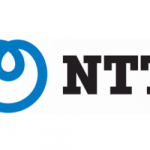Breakthrough in Quantum Communications Network Could Make Niche Technology Mainstream

(PortSwigger.CybersecurityNews&Views) A team of researchers at Bristol University’s Quantum Engineering Technology Lab has developed a quantum communications network that could lower the price and complexity of building quantum key distribution systems. This could transform an established but niche technology currently limited to use by banks and governments into something available to “millions of users in the not too distant future”, according to Dr Siddarth Joshi, who led the study at Bristol University’s Quantum Engineering Technology Labs.
“Until now, building a quantum network has entailed huge cost, time, and resource, as well as often compromising on its security which defeats the whole purpose.”
While quantum key distribution has been deployed by banks in China and, back in 2007, to secure elections in Switzerland, their resource-intensity has precluded their general application. “Until now efforts to expand the network have involved vast infrastructure and a system which requires the creation of another transmitter and receiver for every additional user.
Sharing messages in this way, known as trusted nodes, is just not good enough because it uses so much extra hardware which could leak and would no longer be totally secure,” said Dr Joshi.
The new technique is designed to overcome this problem by leveraging the ‘entanglement’ principle, whereby two particles simultaneously interact with each other at vast distances from one another.
“This latest methodology, called multiplexing, splits the light particles, emitted by a single system, so they can be received by multiple users efficiently,” said Dr Joshi.
The Bristol team’s node-free prototype can sustain eight users with the same number of receiver boxes, compared to the 56 boxes that would be required using previously best available method of quantum key distribution.























